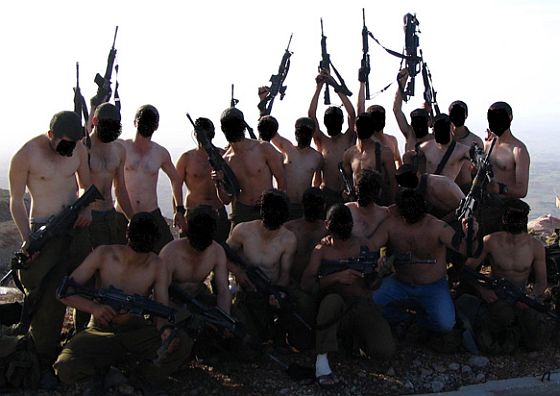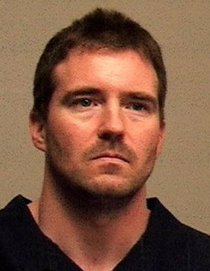The power of language cannot be overstated. Nowhere is this more evident than in the power embedded in the word terrorism — a word which has governed political thought for much of the last decade.
Political acts of violence are older than humanity. Among chimpanzees, for instance, the contest for social power can sometimes be deadly. The killing of an alpha male by socially related chimps is a political act of violence for the purpose of realigning the social order, yet no one would be silly enough to suggest that chimpanzees face a threat from terrorism (even if chimps can indeed terrorize their companions!).
Political acts of violence is a phrase and not a word because it refers to a very broad collection of events that cannot neatly and meaningfully be circumscribed and turned into a thing. Such acts are as diverse in their reasons as they are in their distribution.
But give this amorphous entity a name, terrorism, and suddenly it becomes homogenous. One act of terrorism can be linked to another because they are both, supposedly, the same thing — both performed by the same people: terrorists. The idea that terrorists all share common attributes then reinforces the idea that wherever terrorism takes place we should be united in our response.
Whether it’s an attack in New York or Tel Aviv, Moscow or Mumbai, united we must stand in facing this terrible threat. Political analysis can conveniently be tossed out of the window once we have submitted to the demand that security preempts all other concerns.
Larry Derfner, who until today was a columnist for the rightwing Jerusalem Post, wrote a piece a few days ago in which he made a fine attempt to deconstruct the Israeli myth of Palestinian terrorism, but he made a few mistakes.
Israelis who don’t regard the Irgun and Lehi armed resistance to British rule as terrorism, are in no position to apply the same label to Palestinian resistance to the Israeli occupation. But what Derfner says in this regard in his column, is: “If those who oppose the occupation acknowledged publicly that it justifies Palestinian terrorism, then those who support the occupation would have to explain why it doesn’t. And that’s not easy for a nation that sanctifies the right to self-defense; a nation that elected Irgun leader Menachem Begin and Lehi leader Yitzhak Shamir as prime minister.”
The problem with phrasing his argument this way is that the almost universally accepted dogma these days is that there is no form of terrorism — whether practiced by Palestinians or anyone else — that is justifiable. Not even opponents of the occupation say terrorism is justifiable. On the other hand, what many will acknowledge is that Palestinians, like anyone else living under military occupation, have the right to engage in armed resistance.
Ironically, what inspired Derfner to make his argument was a series of attacks in southern Israel, near Eilat, carried out by gunmen whose identities are in dispute. Some of them have been reported to be Egyptian and not a single Palestinian has been named.
The attacks perfectly illustrate the way in which the label “terrorism” is used to silence those who dare to question the official version of events. But when we don’t actually know who the gunmen were, we can hardly pretend to understand their motives.
If, as many of us suspect, they were salafist militants based in the Sinai whose goal is to establish an Islamic emirate in the largely ungoverned region, their reasons for attacking Israelis might be quite different from those of a Palestinian militant group. At the same time, even if they were Palestinians, we can’t take it as a given that their attack was conceived as yet another strike in the fight against the occupation.
Call a bloody act of political violence an act of terrorism, however, and those of us who insist that we can’t understand what happened if we don’t know who was involved or what motivated them — we will be dismissed as apologists of terrorism or even terrorist sympathizers. Others, buoyed up by their own self-righteousness, anger and indignation will declare that terrorism must be vigorously condemned and tirelessly fought — as though governments are the sole arbiters of the legitimacy of political violence.
Here’s the column blog post, “The awful, necessary truth about Palestinian terror,” that got Derfner fired:
I think a lot of people who realize that the occupation is wrong also realize that the Palestinians have the right to resist it – to use violence against Israelis, even to kill Israelis, especially when Israel is showing zero willingness to end the occupation, which has been the case since the Netanyahu government took over (among other times in the past).
But people don’t want to say this, especially right after a terror attack like this last one that killed eight Israelis near Eilat. And there are lots of good reasons for this reticence, such as: You don’t want to further upset your own countrymen when they are grieving, you don’t want to say or write anything that could be picked up by Israel’s enemies and used as justification for killing more of us. (These are good reasons; fear of being called a traitor, for instance, is a bad reason.)
But I think it’s time to overcome this reticence, even at the cost of enflaming the already enflamed sensitivities of the Israeli public, because this unwillingness to say outright that Palestinians have the right to fight the occupation, especially now, inadvertently helps keep the occupation going.
When we say that the occupation is a terrible injustice to the Palestinians, but then say that Palestinian terror/resistance is a terrible injustice to Israel, we’re saying something that’s patently illogical to anyone but a pacifist, and there aren’t many pacifists left, certainly not in Israel. The logical, non-pacifist mind concludes that both of those statements can’t be true – that if A is hurting B and won’t stop, then B damn sure has the right to hurt A to try to make him stop. But if everybody, not only the Right but the Left, too, is saying that B, the Palestinians, don’t have the right to hurt A, the Israelis, then the logical mind concludes that Israel must not be hurting the Palestinians after all, the occupation must not be so bad, the occupation must not be hurting the Palestinians at all – because if it was, they would have the right to hurt us back, and everybody agrees that they don’t. So when they shoot at us or fire rockets at us, it’s completely unprovoked, which gives us the right, the duty, to bash them and bash them until they stop – and anybody who tries to deny us that right doesn’t have a leg to stand on, so we’re just going to keep right on bashing them. And when the Palestinians complain about the occupation, we Israelis can honestly say we don’t know what they’re talking about.
This, I’m convinced, is how the Left’s ritual condemnations of terror are translated in the Israeli public’s mind – as justification for the occupation and an iron-fist military policy.
But if, on the other hand, we were to say very forthrightly what many of us believe and the rest of us suspect – that the Palestinians, like every nation living under hostile rule, have the right to fight back, that their terrorism, especially in the face of a rejectionist Israeli government, is justified – what effect would that have? A powerful one, I think, because the truth is powerful. If those who oppose the occupation acknowledged publicly that it justifies Palestinian terrorism, then those who support the occupation would have to explain why it doesn’t. And that’s not easy for a nation that sanctifies the right to self-defense; a nation that elected Irgun leader Menachem Begin and Lehi leader Yitzhak Shamir as prime minister.
But while I think the Palestinians have the right to use terrorism against us, I don’t want them to use it, I don’t want to see Israelis killed, and as an Israeli, I would do whatever was necessary to stop a Palestinian, oppressed or not, from killing one of my countrymen. (I also think Palestinian terrorism backfires, it turns people away from them and generates sympathy for Israel and the occupation, so I’m against terrorism on a practical level, too, but that’s besides the point.) The possibility that Israel’s enemies could use my or anybody else’s justification of terror for their campaign is a daunting one; I wouldn’t like to see this column quoted on a pro-Hamas website, and I realize it could happen.
Still, I don’t think Hamas and their allies need any more encouragement, so whatever encouragement they might take from me or any other liberal Zionist is coals to Newcastle. What’s needed very badly, however, is for Israelis to realize that the occupation is hurting the Palestinians terribly, that it’s driving them to try to kill us, that we are compelling them to engage in terrorism, that the blood of Israeli victims is ultimately on our hands, and that it’s up to us to stop provoking our own people’s murder by ending the occupation. And so long as we who oppose the occupation keep pretending that the Palestinians don’t have the right to resist it, we tacitly encourage Israelis to go on blindly killing and dying in defense of an unholy cause.
And by tacitly encouraging Israelis in their blindness, I think we endanger their lives and ours, their country and ours, much more than if we told the truth and got quoted on Hamas websites.
There’s no time for equivocation anymore, if there ever was. The mental and moral paralysis in this country must be broken. Whoever the Palestinians were who killed the eight Israelis near Eilat last week, however vile their ideology was, they were justified to attack. They had the same right to fight for their freedom as any other unfree nation in history ever had. And just like every harsh, unjust government in history bears the blame for the deaths of its own people at the hands of rebels, so Israel, which rules the Palestinians harshly and unjustly, is to blame for those eight Israeli deaths – as well as for every other Israeli death that occurred when this country was offering the Palestinians no other way to freedom.
Writing this is not treason. It is an attempt at patriotism.




 The emerging picture suggests 36-year-old Kevin William Harpham is a “lone wolf’’ with a military ordnance background and apparently increasingly extreme radical-right views that may have prompted the attempt to carry out a mass murder on the late civil rights leader’s birthday. He is also a man who has joined a neo-Nazi group, apparently posted to racial extremist websites and worried that the 9/11 attacks were actually a government conspiracy.
The emerging picture suggests 36-year-old Kevin William Harpham is a “lone wolf’’ with a military ordnance background and apparently increasingly extreme radical-right views that may have prompted the attempt to carry out a mass murder on the late civil rights leader’s birthday. He is also a man who has joined a neo-Nazi group, apparently posted to racial extremist websites and worried that the 9/11 attacks were actually a government conspiracy.